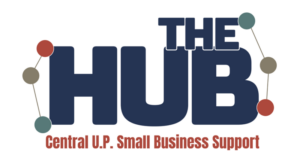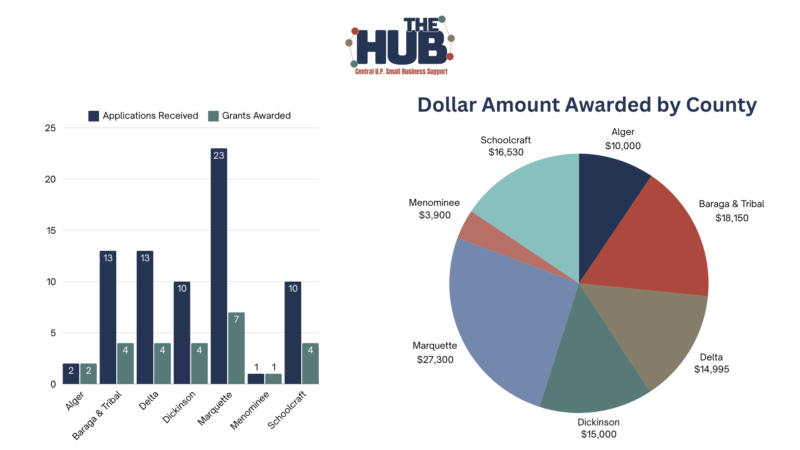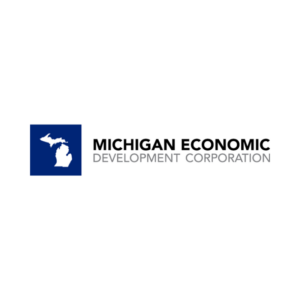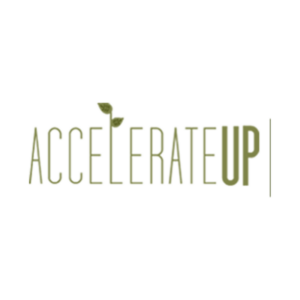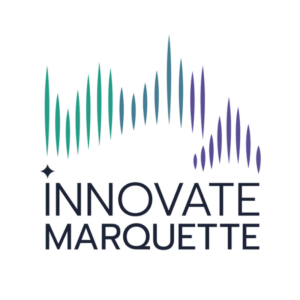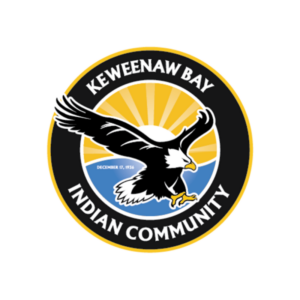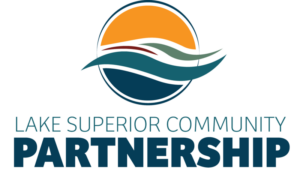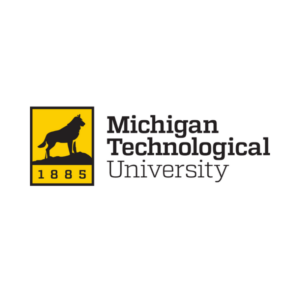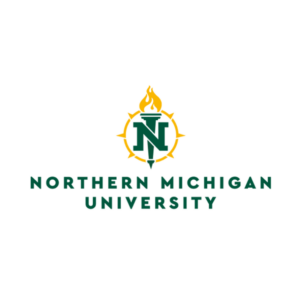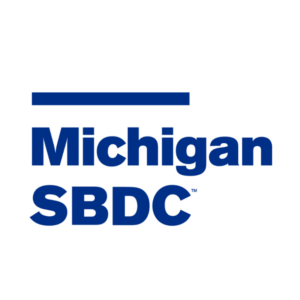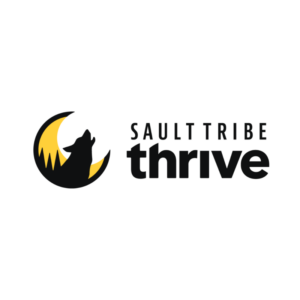In November 2023, the Michigan Economic Development Corporation announced $73 million in grant awards to establish Small Business Support Hubs across the state. A group of local economic development organizations collaborated to apply for funds and were awarded a total of $3,426,015 over three years to set up and operate the Central Upper Peninsula Small Business Support Hub (“the Hub”), covering Alger, Baraga, Delta, Dickinson, Marquette, Menominee, and Schoolcraft counties. This page provides updates on the status of the Hub to keep all interested stakeholders informed and ready to access its resource once it is operational.
The Hub is made possible through collaboration with many partners including the LSCP, Accelerate U.P., Innovate Marquette SmartZone, Northern Michigan University, Small Business Development Center Upper Peninsula Region, Keweenaw Bay Indian Community, and Sault Tribe Thrive.
The purpose of establishing hubs across the state is to streamline delivery of resources and support to small businesses in Michigan. Far too often, small business owners simply don’t have time to use the resources which already exist due to confusion about which organization to go to, a lack of time to even research options, a lack of match for grants, or programs that are too narrow to help with general needs for business growth. The Hub aims to address these by placing boots-on-the-ground in seven counties throughout the central upper peninsula and custom tailoring services to each county.
Introducing the HUB Presentation
Print Resources
Webinar Recording Links
- Boost Your Business with Erica Huss
- Grant Writing 101 with Paul Thares and Liam Goetz
- The Five Basics of Digital Marketing with the SBDC
- Setting up your Legal Structure with the MEDC
- Winter 2025 Direct Grant Webinar with Erica Huss
- Introducing Cybersecurity into your Small Business with Doug Miller
- Navigating the “New Google” with the SBDC
- Elevate Your Small Business with Brooke Quinn
- Direct Grant Overview Webinar with Erica Huss
*These resources do not replace the grant requirement to attend a HUB sponsored event, program, or training
Eligibility
Businesses that participate in the Hub’s programs, events, support and services within the 6 months prior to the Award are eligible to apply for Hub Direct Grants.
To receive support and services from The Hub, a business must be in Alger, Baraga, Delta, Dickinson, Marquette, Menominee, or Schoolcraft County, be defined as a small business, and qualify as disproportionately impacted by COVID-19. Independently owned and operated businesses that have less than 500 employees AND are not dominant in their field of operation are considered small businesses. All seven counties in The Hub’s coverage area are designated as Rural Michigan Counties that qualify as disproportionately impacted by COVID-19. Therefore, all small businesses within them, including start-ups and those recently established, also qualify as disproportionately impacted by COVID-19.
Eligible Applicants
To be eligible to apply for a Direct Grant, a business must:
- Meet SBSH Program eligibility guidelines; AND
- Have participated in one of The Hub’s events or services within the six months before the award
**Nonprofit organizations and businesses in the cannabis or casino gaming industries are not eligible to receive support and services from The Hub.
What can Hub Direct Grant funds be used for?
Hub Direct Grand Funds may be used to:
-
- purchase equipment, inventory, software, hardware up to $4,999 per unit;
- pay for highly specialized consulting services, or other services Hub cannot provide or directly contract for;
- pay certification or licensing fees (for certification or licensure received by 9/30/2026);
- Pay for any other HUB-approved cost (that is not an Ineligible Cost) related to supporting the business’ operations or growth needs
Are there things Hub Direct Grant funds cannot be used for?
Yes, Hub Direct Grant Funds are not permitted to be used to pay for:
- general overhead: rent, lease payments, utilities, personnel costs, professional memberships, certifications, and license renewals
- general infrastructure projects
- building–based construction or renovation
- eligible costs to be reimbursed or that have been reimbursed by another MSF, MEDC, or federal program
- projects contrary to efforts to stop the spread of COVID-19
All Direct Grant Award contracts must be signed by February 1, 2026, and all funds awarded must be spent by September 30, 2026.
Businesses may only receive one Direct Grant Award from all Small Business Support Hub Program Grant funding sources.
When and how can I apply for a Hub Direct Grant for my business?
The first Direct Grant application window is currently open: it extends from September 13, 2024 to October 11, 2024. Eligible businesses, those that have participated in The Hub’s programs or services within the past 6 months, are being emailed notification and application information.
View the Hub’s Direct Grant Guidelines and Fact Sheet
Click on the GET CONNECTED button to submit your business’ information and your contact information. Upon receipt of your submission, a Hub Small Business Resource Navigator will contact you to get you connected!
Questions related to the Hub may be directed to the Hub’s Program Manager or any of the Hub’ Small Business Resource Navigators.
BARAGA COUNTY & TRIBAL COMMUNITIES
Navigator: Robin Chosa
rlchosa@mtu.edu
(906) 370-6480
BARAGA COUNTY & TRIBAL COMMUNITY
Office Hours (ET): Tuesday & Thursday 9 am-12 pm & 1-4 pm
Michigan Works
2 South Main St. #A
L’Anse, MI 49946
DELTA COUNTY TRIBAL COMMUNITY
Office Hours (ET): Wednesday 9 am-noon & 1-4 pm
Hannahville Vision Center
N16315 A-1 Rd.
Bark River, MI 49807
MARQUETTE COUNTY TRIBAL COMMUNITY
Office Hours (ET): Monday by appointment only
Sault Tribe Thrive Office
TBD
Harvey, MI
DICKINSON AND MENOMINEE COUNTIES
Navigator: Jose Laynez
jlaynez@mtu.edu
(906) 370-6563
DICKINSON COUNTY
Office Hours (CT): Tuesday 9am-noon & 1-4 pm, Wednesday 9am-noon & 1-4 pm
MI WORKS
127 S. Stephenson Ave Suite 211
Iron Mountain, 49801
MENOMINEE COUNTY
Office Hours (CT): Monday 9am-noon & 1-4 pm, Thursday 9am-noon & 1-4 pm
MI WORKS
461 1st St.
Menominee, MI 49858
ALGER, DELTA, & SCHOOLCRAFT COUNTIES
Navigator: Ilana Minor
iminor@mtu.edu
(906) 370-1576
ALGER COUNTY
Hours (ET): Thursday 9 am-noon & 1-4 pm
MI WORKS
413 Maple Street, Suite 6. Room 101
Munising, MI 49862
DELTA COUNTY
Hours (ET): Monday 9 am-noon & 1-4 pm, Tuesday 9 am-noon & 1-4 pm
MI WORKS
2950 College Ave.
Escanaba, MI 49829
SCHOOLCRAFT COUNTY
Hours (ET): Wednesdays 9 am-noon & 1-4 pm
MI WORKS
300 Walnut St #264
Manistique, MI 49854
MARQUETTE COUNTY
Navigator: Liam Goetz
liam@accelerateUP.com
(906) 250-0288
MARQUETTE COUNTY
Hours (ET): Monday-Thursday 9 am-noon & Monday, Tuesday, Thursday 1-5 pm
Accelerate UP
102 West Washington Street, Room 224
Marquette, MI 49855
By appointment:
West End Economic Hub
910 US-41 W
Ishpeming, MI
Is my business eligible to use the Hub?
How much of the Hub funds are going to administrative support?
When will the Hub be operational?
How long will the Hub operate?
How will the Hub operate with other local economic development and business development organizations?
What is the review process for my application?
- Does not meet the program requirements, including scope, eligibility, and allowable grant dollar use.
- Is received after the deadline.
- Is incomplete or missing any of the required forms, narrative, and budget.
- Does not follow the outlined application requirements.
Where can I learn more about the overall Small Business Support Hub program?
Do businesses need to have been operating before March 2020 in order to receive a direct grant from the Support Hub?
For the purposes of this program, the MEDC is defining disproportionately impacted by COVID-19 a business that meets one or more of the following:
- A business located in CDFI Investment Areas, Qualified Census Tracks, or rural areas of Michigan (map). All 7 Central UP Counties within in The HUB’s coverage area are designated Rural Michigan Counties. Thus, all small businesses within them that otherwise meet the Hubs program criteria, including new businesses, are eligible to participate in The HUB to qualify to apply for it’s Direct Grants.
- A business that meets the definition of SEDI-owned
- A business that can demonstrate a disproportionate negative economic impact as a result of COVID-19
How does the MEDC define a Non-Profit?
If a capital expense exceeds $4,999 can we pay the difference out of pocket or does the item itself have to cost less than that?
No. Individual capital expenses cannot exceed $4,999. Grantees may not cover the difference.
Are expenses incurred prior to the grant being awarded eligible for reimbursement?
No. Expenses incurred prior to the grant agreement execution are not eligible.
Are businesses who received COVID-19 relief funding through PPP or other federal programs eligible to receive a direct grant through the Small Business Support Hubs funding?
Yes. Eligible businesses who have received other COVID-19 related small business relief funding can still receive additional grant support through the Small Business Support Hubs program.
Where can I find the minority-owned definition?
Definitions for Disproportionately Impacted by COVID-19, Minority-owned business, Socially and Economically Disadvantaged Individual (SEDI) can be found in the Small Business Support Hubs Program Guidelines, on the Small Business Support Hubs website.
How will direct grants be allocated to small businesses?
Finally – The Entrepreneurial Hub must adhere to the ARP imposed obligated and expenditure deadlines. Direct grant funds awarded to small businesses through the Hubs must be identified and under contract by 2/01/2026.
Can a client who hasn’t connected since a previous round still apply for the current round if they re-engage with their Navigator prior to the grant window opening?
However, if a business did not meet with their Navigator for an initial consultation before the current application window opens, they cannot apply for the current round. Any meetings or events from today onward will count toward eligibility for the next application window.
Can the small business be in the process of starting their small business to receive direct grant support?
Note: Direct grants dollars are taxable income. Hubs are required to provide any necessary financial documentation to the business for the purposes of tax filings (example – issuing a 1099).
Can a Small Business Support Hub use funding to support a small business that is in the tech industry?
Yes. Small businesses, regardless of industry*, are eligible to receive support through the Hub as long as they meet the MEDC’s definition of having been disproportionately impacted by COVID-19.
*Nonprofit organizations and businesses in the cannabis or casino gaming industries are not eligible to receive support and services from The Hub.
Many of our businesses received previous Covid relief grants. Would those businesses be eligible for these direct business grants?
Yes. A business previously receiving support for other federal, state, or local COVID-19 programs has no impact on eligibility for this program. With that said, a Hub may identify their own eligibility requirements based on their local or regional priorities and program goals.
How will tribal entities confirm their eligibility?
All applicants will self-certify that they meet eligibility requirements.
Is there a match requirement for this program?
Is it my responsibility to be connecting with the Hub even if my Hub Navigator is not reaching out to me?
Yes! It is your responsibility to maintain your business’s eligibility for the direct grants. We encourage you to make the most of our program beyond just the funding. The grant money is available for a limited time, so take full advantage of the Hub’s programs, services, and events. These resources can help you learn where to find and who to contact in your community for small business support and continuing access to all available resources. Additionally, you’ll gain valuable practices to improve various aspects of your business, benefiting you throughout your entrepreneurial journey!
The businesses can apply for Direct Grant funds for new furniture, tech, etc., but not for the construction cost to renovate a space? (7/12/23)
That is correct.
In the example of creating a kitchen incubator, would general overhead such as rent/leasing of space and/or utilities be an eligible expense?
For eligible businesses, general overhead such as rent, lease payments, or utilities are not an eligible use of direct grants.
Does the capital expense limit of $4,999 apply to direct grants to small businesses, as well as The Hub? For example, can a small business who receives a $10,000 direct grant from an eligible support hub use it to purchase a $20,000 piece of equipment?
The capital expense limit of $4,999 applies to direct grants to small businesses as well as to operational and programming expenses of the Hubs.
Does the business have to be incorporated when Covid started?
No. To qualify for programs, services or direct grants, a business must qualify as disproportionately impacted by COVID19, this is defined in the program guidelines.
Are entrepreneurs located outside of The HUB’s 7-County coverage area, who wish to establish a business within The HUB’s coverage area, eligible to participate in The HUB and apply for The HUB’s Direct Grants?
No. Businesses and entrepreneurs located outside of The HUB’s coverage area are not eligible to participate in The HUB’s Programs, Services, or Direct Grants to establish a business within the HUB’s coverage area. They are encouraged to connect with the Economic Development Agencies and (EDC, DDA, Chamber) and municipalities (County and City managers…) in the Counties they are considering for their start-up to obtain infrastructure and strategic planning information for the locale as well as information on any local or state grant funding or tax breaks available to attract new businesses.
If a person operates multiple LLC’s, can each of their LLC’s apply for the grant?
Yes. Direct Grants may be applied for by each of the LLC’s owned by an individual. However, the SBSH Program’s purpose is to extend support, services, and resources to the most businesses and owners possible in underserved rural areas and the SBSH’s Direct Grant funds are limited. Therefore, applicants whose business(es) haven’t received an award may be prioritized over Awardees that apply for a Direct Grant for another of their businesses.
What if I can’t attend a Webinar or event?
If the event is virtual, the presentation recording and slide deck of the presentation will be posted to the Hub website under the Resources dropdown within a day or two of the event.
What is the difference between a match (which should be entered into the match being supplied box on the application) and just you investing in your business (which can be explained in the "additional information" box of the application)?
Matches are directly related to the grant project you are requesting. A match may be something that you or an investor are paying for that is directly related to the project you are requesting. It IS NOT required but is encouraged. If you are entering that you are supplying a match, you need to enter that amount in the “match being supplied” box and in the amount being matched box on the budget. Please ensure that the total you are requesting on your budget is the amount you are requesting from the grant, not the total with the match. If you are investing in your business outside of the specific project you are asking for help with, this is not considered a match but is helpful info for us to have. Please enter more details about this in the additional information box at the end of the application.
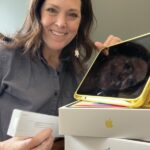
“To all of the Community Strategic Partners of ‘The Hub’,
A heartfelt thank you for granting us the funding for iPads and iPencils! Your support through the Hub will enhance our sessions – helping with note-taking, forms, and even introducing gaming therapy for our young clients. We are excited to integrate this technology to better serve our community.
With gratitude,
JoAnne Garrow, Caught Dreaming Therapy”
Signed by JoAnne and eight of her technicians, this touching thank-you letter is a testament to the impact of The Central U.P. Small Business Support Hub. We are proud to support businesses like Caught Dreamin’ Therapy so they can continue providing vital services to our community.

“[The grant] forced me to look at the financial side of my business and I think I started this business like a lot of people start a small business with just an idea and just going from there. So, with [Ilana’s] help, I was able to create a business plan. I was able to look at like my cost of goods sold and where should I focus my attention and finances as opposed to just ‘oh, look, I’m making candles, I’m going to go to a craft show.’”
– Kathleen Latsch, Owner of Of Curious Nature
“Some of the challenges we faced, we were just trying to muscle through them and get the job done, so to speak. And we had ideas of things we wanted to do, and this really helped us just do it and make those improvements that we had to do.”
– Greg Styczynski, Owner of Rock Electric Service

“For us to be able to grow and service the Upper Peninsula community in a kind of a niche market is not only helpful for me as a business owner but gives access to community members as well.”
– Tyler Myrick, Owner of Young’s Menswear
“I would always say when you apply for a grant, always talk to the staff in charge of it first. Really listen to what they’re looking for and what they have to say. You know, they’re going to give you advice to be successful. So I guess I would just say, listen first, but then Just be honest about what you need and be really bold about what you’re trying to do. Like what your vision is and what you want to accomplish. Be clear about that and be excited about that.”
– Jill Hoffman, Owner of Campfire Shores
HUB Hosted Events
Summer 2025 Direct Grant Overview with Erica Huss
Wednesday, April 16th | 10 a.m. EST
This is a virtual event.
Introduction to HUB Resources
Delta County – April 29th
Schoolcraft County – April 30th
Alger County – May 1st
More details to come.
SMART Sessions
SMART Sessions is a weekly series of free, 1-hour Zoom Q&A and info sessions designed to provide business owners and their team members with practical advice they can use right away. Sessions are led by Michigan business experts and offer clear, actionable steps to help businesses become stronger and more stable.
SMART Sessions are hosted by Headwaters North as part of the Eastern U.P. Small Business Support Hub (SBSH) program. However, they also qualify as events for the Central U.P. Small Business Support Hub, provided that attendance is verified by the hosting organization.
For questions about SMART Sessions, please contact your county’s Navigator or email erica@centralupsmallbizhub.org.
Direct questions related to the Hub to erica@centralupsmallbizhub.org.

